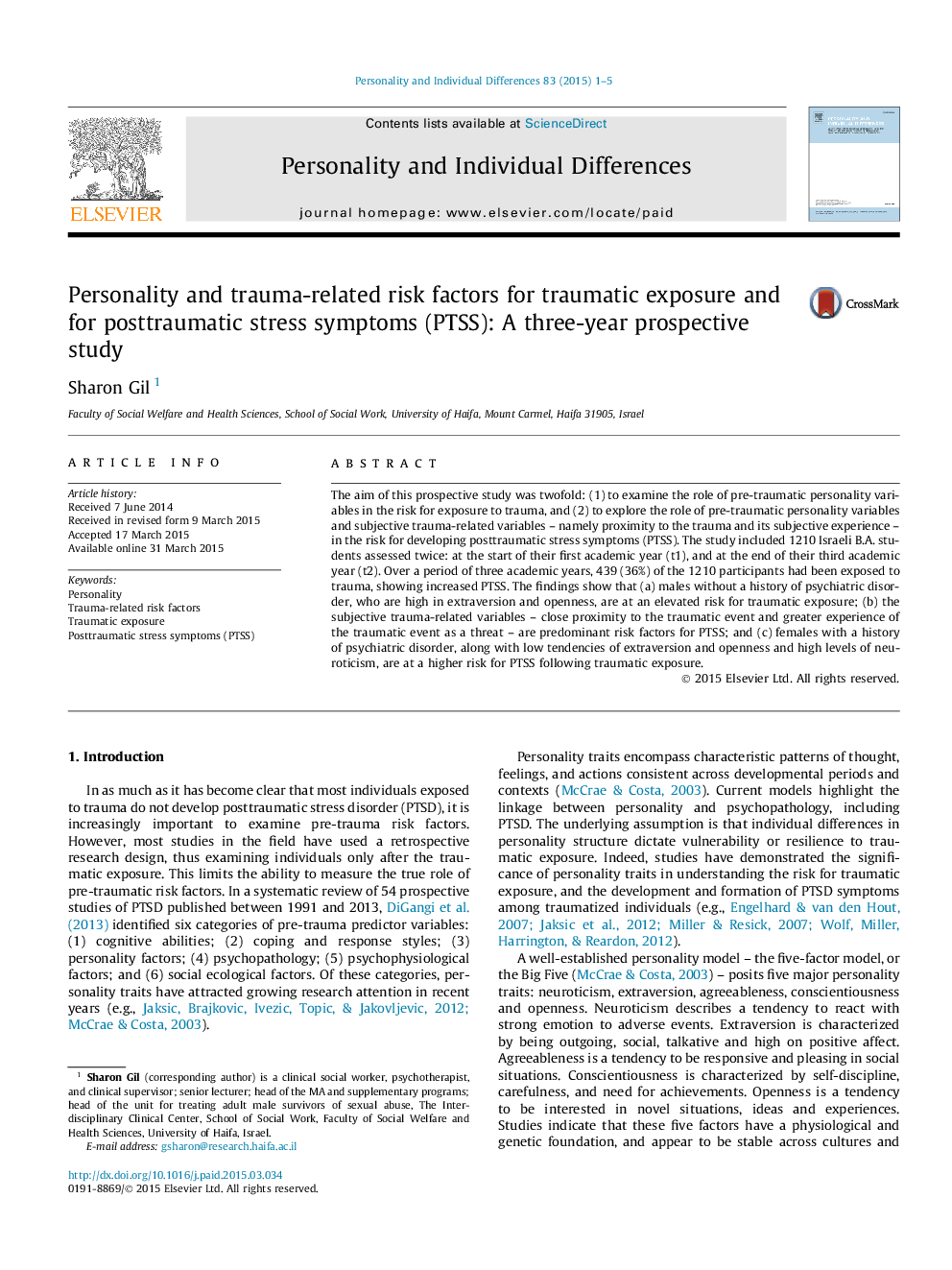| Article ID | Journal | Published Year | Pages | File Type |
|---|---|---|---|---|
| 890123 | Personality and Individual Differences | 2015 | 5 Pages |
•Close proximity to a traumatic event is a predominant risk factor for PTSD.•Greater experience of a traumatic event as a threat increases the risk for PTSD.•Males who are high in extraversion and openness are at an elevated risk for traumatic exposure.•Females who are high in neuroticism are at a higher risk for PTSD.
The aim of this prospective study was twofold: (1) to examine the role of pre-traumatic personality variables in the risk for exposure to trauma, and (2) to explore the role of pre-traumatic personality variables and subjective trauma-related variables – namely proximity to the trauma and its subjective experience – in the risk for developing posttraumatic stress symptoms (PTSS). The study included 1210 Israeli B.A. students assessed twice: at the start of their first academic year (t1), and at the end of their third academic year (t2). Over a period of three academic years, 439 (36%) of the 1210 participants had been exposed to trauma, showing increased PTSS. The findings show that (a) males without a history of psychiatric disorder, who are high in extraversion and openness, are at an elevated risk for traumatic exposure; (b) the subjective trauma-related variables – close proximity to the traumatic event and greater experience of the traumatic event as a threat – are predominant risk factors for PTSS; and (c) females with a history of psychiatric disorder, along with low tendencies of extraversion and openness and high levels of neuroticism, are at a higher risk for PTSS following traumatic exposure.
